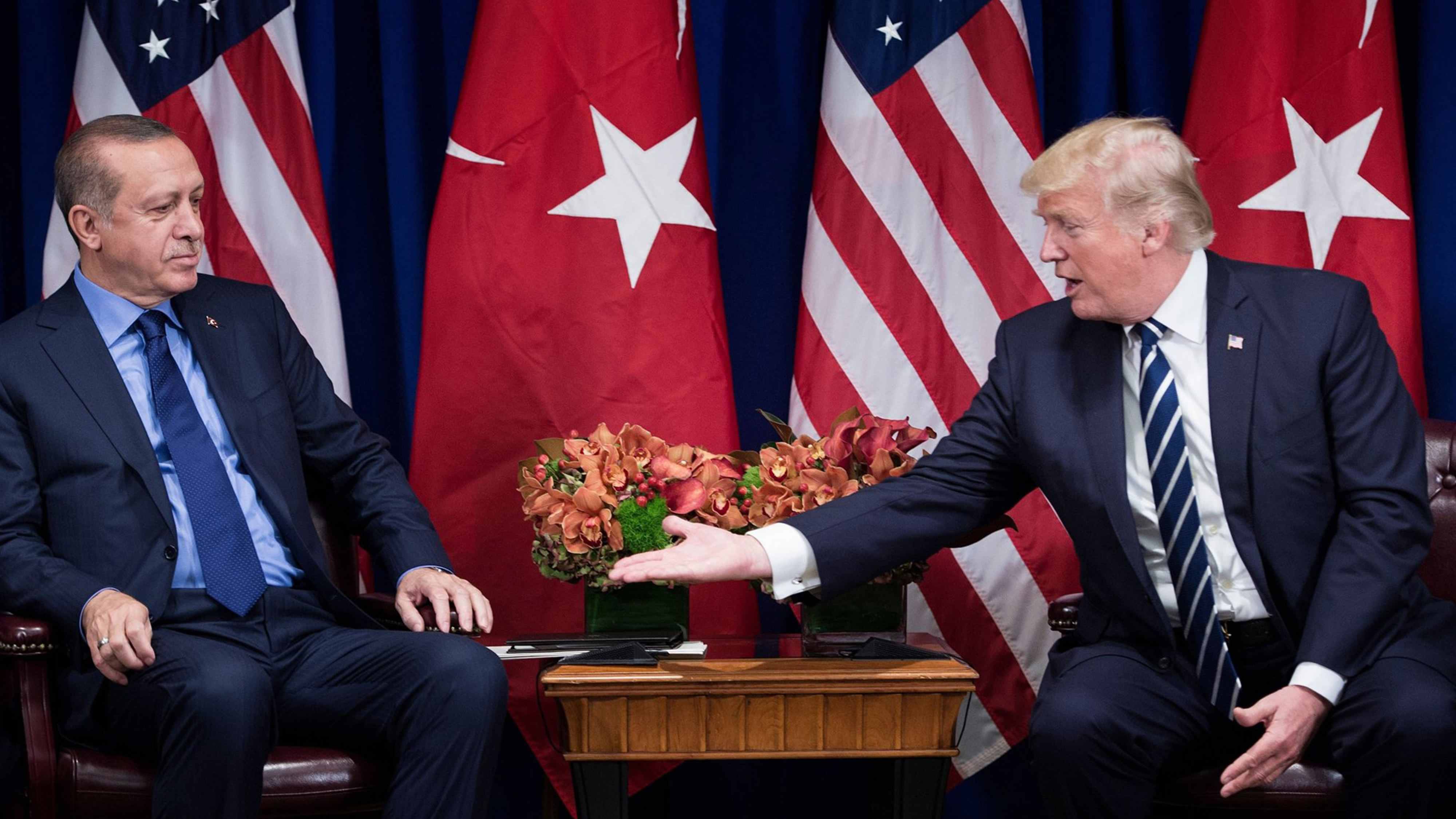
Politics
21:19, 10-Jan-2018
Turkey-US relations take another turn for worse
By Michal Bardavid

Turkey is a country accustomed to conspiracies. It is part of everyday talk and a familiar choice of argument.
Many Turks believe large organizations abroad are behind negative events that occur in this country. Bombings, terror attacks, economic crises, diplomatic crises – all blamed on outside influence.
The Turkish government claims the Fethullah Gulen organization, known as FETO and deemed a terrorist organization by Ankara, is behind the failed coup attempt of 2016. Fethullah Gulen is a Muslim cleric in self-exile in Pennsylvania. The US has refused to extradite him despite frequent and determined requests by the Turkish government. This had already led to an even bigger assumption by the Turkish government and public – the US is behind the failed coup.
But these thoughts are planted by the rhetoric of Turkish President Recep Tayyip Erdogan. The leader frequently blames the US with interfering with Turkey's politics in a general tone. A recent development has led to an outright-direct accusation of American intelligence of trying to undermine the Turkish government.
On Jan. 4, a US court found Turkish banker Mehmet Hakan Atilla guilty of helping Iran evade US sanctions. Atilla was convicted on five counts of conspiracy and bank fraud. But Atilla was not the star of the trial – it was Reza Zarrab who sealed the case for the prosecution as its key witness. Zarrab, a Turkish-Iranian gold trader, confessed to have been part of the scheme. He claimed he bribed the then-Turkish economic minister and that the Turkish president was fully aware of the operation all along, charges Erdogan has denounced.

Turkish gold trader Reza Zarrab is shown in this court room sketch with lawyer Marc Agnifilo (L) as he appears in Manhattan federal court in New York, US, April 24, 2017. /Reuters Photo
Turkish gold trader Reza Zarrab is shown in this court room sketch with lawyer Marc Agnifilo (L) as he appears in Manhattan federal court in New York, US, April 24, 2017. /Reuters Photo
During a parliamentary assembly on Tuesday with AK Party members who cheered him on, Erdogan openly made accusations against US intelligence services.
Erdogan said the US trial was baseless and stated. "The court case in the United States is the address of a political coup attempt. In their way, this is an operation to corner Turkey economically, through the terrorist organization FETO, CIA and FBI. But this won't work either. They will not achieve this either."
Many in Turkey are worried about the potential economic consequences resulting from the trial. Though the verdict did not have a major impact on the Turkish stock market or the currency, some experts emphasize the critical factor will be what kind of penalty American financial authorities, such as the US Treasury, levy to Turkey's Halkbank. The fact that prosecution witness Zarrab has claimed Erdogan was aware of the scheme has not affected the President's support base, but it will be significant to see if the Turkish economy is affected in the long term, especially prior to Presidential elections in 2019.
Relations between Turkey and the US have been strained for quite some time now, due to other reasons as well. Turkey had been harshly critical of the US for arming the Syrian Kurdish group YPG in their fight against ISIL, as Ankara sees the YPG as a terrorist organization. Also Turkish–US relations recently overcame a diplomatic dispute that had resulted in a mutual visa suspension – following Turkey's arrest of an American embassy employee in Turkey over terror charges in October. This latest trial has only made matters worse and relations more difficult to mend.
6842km

SITEMAP
Copyright © 2018 CGTN. Beijing ICP prepared NO.16065310-3
Copyright © 2018 CGTN. Beijing ICP prepared NO.16065310-3